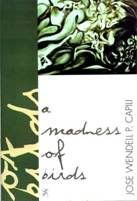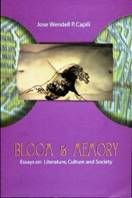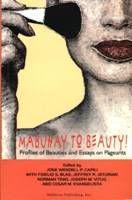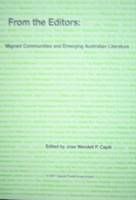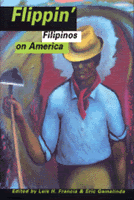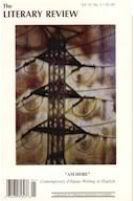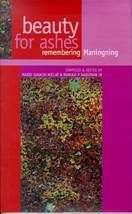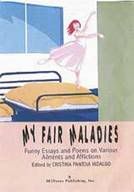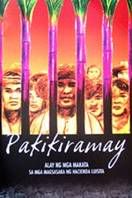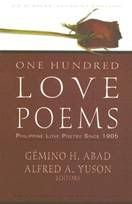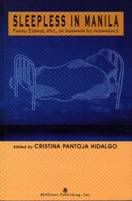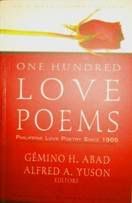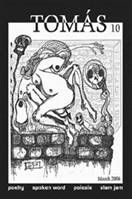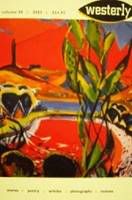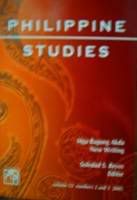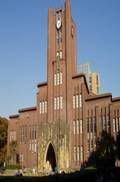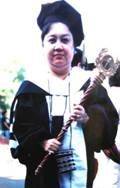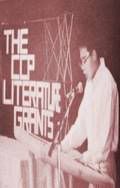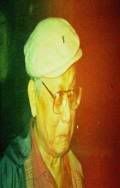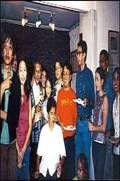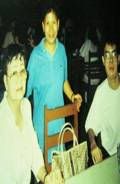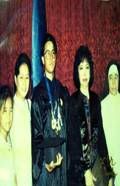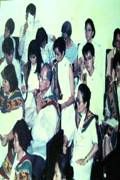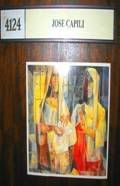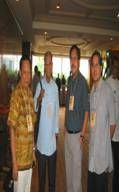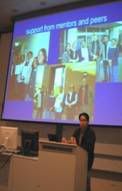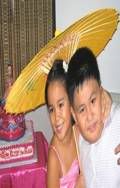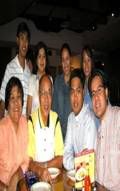Winners: “CHILE: ODES FROM THE PHILIPPINES”A Poetry Contest for Filipino Students
“CHILE: ODES FROM THE PHILIPPINES”A Poetry Contest for Filipino Students
http://www.up.edu.ph/features.php?i=226
A Project of The Embassy of Chile and The University of the Philippines System in commemoration of the Bicentenary of Independence of the Republic of Chile, and in celebration of the rescue of 33 Chilean miners in San Jose.
Winners
1. The 34th Miner (Rene Calunsag, UP Diliman)
2. Kiss of Sunrise ( Therese Marie Villarante, Cebu Normal University)
3. Scarred Land ( Marie Celine Anastasia Socrates, UP Diliman)
Honorable Mention
4. Chile. Hope is in the heart (Mariejo Maris Sawal Ramos, UP Diliman)
5. (tie)
A) Chile in the land where the earth ends (David John Descalzo Ubera, Nueva Vizcaya State University)
B) Immured (Mirava Yuson, UP Diliman)
Prizes will be awarded on Tuesday, 1 February 2011, 6:00 p.m. at the Executive House, Pardo de Tavera near E. de los Santos St., UP Diliman, Quezon City. The event is by invitation only.
EXECUTIVE COMMITTEE
His Excellency Professor Dr. Roberto Mayorga, Ambassador
of the Republic of Chile
Professor Emerlinda R. Roman, President of the University of the Philippines System
Honorary Chairpersons
Consul Luis Alberto Palma, Deputy Chief of Mission, Embassy of the Republic of Chile
Professor Jose Wendell Capili, Assistant Vice President for Public Affairs, UP System
Project Coordinators
Associate Professor Mercedes Planta, Deputy Director, UP System Information OfficeAssociate Professor Wystan de la Pena, Chairperson, UP Department of European Languages
Committee Members
H.E. Ambassador of the Republic of Chile Professor Dr. Roberto Mayorga (Chair)
Consul Luis Alberto Palma, Deputy Chief of Mission, Embassy of the Republic of Chile
Philippine National Artist for Literature F. Sionil Jose, Winner, Pablo Neruda Literary Prize from the Republic of Chile
University Professor Emeritus Gemino Henson Abad, former Vice President for Academic Affairs, UP System
Professor Emeritus Cristina Pantoja Hidalgo, former Vice President for Public Affairs, UP System
Professor Isabelita Orlina Reyes, Vice President for Public Affairs, UP System
Board of Judges
RULES OF THE CONTEST – 2010
1. The contest is open from 19 September 2010 until 30 November 2010
to all Filipino students from any tertiary education (college) course except current family members of officers and employees of the Embassy of Chile and the University of the Philippines.
2. The contest has the following division and category: English Division – Poetry.
3. An entry must consist of one (1) poem of any form or length on or about the Republic of Chile—its bicentenary, people, scenery, culture and/or society and/or the emotions of the poet regarding the successful rescue operations involving 33 Chilean miners in San Jose.
4. Authors may submit only one (1) entry.
5. A work which has been awarded a prize in another contest before 30 November 2010 is not qualified for the awards.
6. All entries should be submitted through this email address:poetrychile2010@gmail.com
7. All entries should be in Rich Text Format (RTF) or in a Word Document File and should be sent as an attachment together with scanned copies of the author’s full résumé. The time of transmission should be NOT LATER THAN
12:00 m.n. of 30 November 2010
An entry will only be considered submitted if official confirmation is received through poetrychile2010@gmail.com
8. In submitting an entry, a contestant represents and warrants that the work is his own and that he has absolute ownership of all intellectual property rights thereto. If the entry is an adaptation of another author’s existing work, the contestant shall submit to the Embassy of Chile and The University of the Philippines the written consent of the author of the existing work, allowing the contestant to adapt the work, and to enter the adaptation in the contest (the Consent). The Consent shall include a clear and categorical statement that the Embassy of Chile and The University of the Philippines shall be exempt from any and all liability in the event that the adaptation is said to infringe the intellectual property rights of the author of the existing work. The Consent must be notarized and, if executed outside the Philippines, should be authenticated by the Philippine Embassy or consulate.
9. All copies should be legible and neat. Entries must be addressed by email to the Board of Judges, “CHILE: ODES FROM THE PHILIPPINES”A Poetry Contest for Filipino Students c/o The University of the Philippines System Information Office, Mezzanine, Quezon Hall, University of the Philippines, DIliman, Quezon City 1101
10. Entries submitted must comply with government policies on printed matters. Submitted copies of winning entries shall remain with, and become the property of the Embassy of Chile.
11. In order to give public access to all of the competing works presented, the author hereby grants, assigns, and transfers unto the Sponsors, the right without necessity of any payment other than the prize which may have been awarded: to publish from time to time any winning entry or selection or portion thereof as it may at its discretion determine; to designate or appoint editors to edit the work or any portion thereof to suit the demands of publication; to furnish a reasonable number of copies of all winning works to libraries; to make the works available for downloading on the Internet or other electronic media; and/or to allow students to make copies for research or in connection with their school requirements. The Sponsor shall also have the right to appoint or designate editors or directors who may edit the work or any portion thereof to suit the demands of production or exhibition.
11. The prizes, in United States Dollars, are the following:
1st Prize – United States Dollars US$ 1000
2nd Prize – United States Dollars US$ 500
3rd Prize – United States Dollars US$ 500
Honorable Mention Winners (3) – United States Dollars US$ 100
All five (6) winners will also receive two (2) round trip tickets to Cebu or Boracay, courtesy of Air Philippines and La Isla Magazine. The winning poems will be published in three languages: English, Spanish and Filipino. The anthology of poems will be launched in Chile and in the Philippines.
12. There shall be no co-winners and/or splitting of the prize money. The Board of Judges shall have the discretion not to award any prize if, in its judgment, no meritorious entry has been submitted.
14. The Embassy of Chile and The University of the Philippines have the sole right to designate the persons who shall constitute the Board of Judges in each of the contest categories. The decision of the majority of the Board of Judges in all categories shall be final.
16. All parties submitting entries are deemed to have accepted the rules of the contest, and agree to abide thereby.
ALL ENTRIES MUST STRICTLY COMPLY WITH THESE RULES.
ALL DOCUMENTARY REQUIREMENTS MUST BE COMPLETE AT THE TIME OF SUBMISSION
***
http://www.up.edu.ph/features.php?i=226
